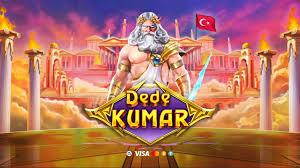Reviving Cultural Memory Through a Traditional Turkish Game

Dede Oyunu," which translates to "Grandfather's Game," is a traditional Turkish children’s game that has been passed down through generations. Rooted in rural Turkish culture, especially in Anatolia, this game blends play with moral lessons, social interaction, and respect for elders. Though lesser-known globally, Dede Oyunu is a cultural treasure that reflects Turkish values and communal bonding.
Historical and Cultural Background
Dede Oyunu originates from traditional Turkish village life, where elders—often referred to as "dede" (grandfather)—held a central role in family and social structures. In the absence of modern entertainment, storytelling, songs, and interactive games like this one were the main sources of recreation and education for children. The "dede" in the game often symbolizes wisdom, tradition, and authority. This game also served to reinforce respect for the elderly and the transmission of cultural values and stories to younger generations.
How Dede Oyunu Is Played
The game typically requires a group of children and one person acting as the "dede." The "dede" sits in a central position, and the children gather around. The game often involves a dialogue-based structure, where children ask questions or perform short rhymes, and the "dede" answers with clever, humorous, or moral responses.
In some versions, the "dede" asks riddles or tells a story with hidden meanings, and the children must interpret or respond. It’s common for children to take turns becoming the "dede," making the game dynamic and participatory. Physical activity, such as mimicking or playful gestures, may also be involved, especially in rural versions of the game.
Educational and Social Benefits
Dede Oyunu is more than a source of amusement—it’s an educational tool. The game enhances children’s listening skills, memory, language development, and creativity. Through riddles and stories, kids learn about ethics, community roles, and traditional wisdom. It also fosters confidence, as taking on the role of "dede" gives children a chance to lead and express themselves publicly.
Socially, the game encourages group participation, cooperation, turn-taking, and empathy. It provides a platform for bonding among peers and between generations, as sometimes real elders participate or supervise the game. This interactive learning helps reinforce family and community connections in a playful, non-formal setting.
Modern Relevance and Revival
With the rapid urbanization and digitalization of modern life, games like Dede Oyunu are slowly fading from everyday life. However, there has been renewed interest in reviving traditional games as part of cultural preservation efforts. Schools, cultural centers, and festivals in Turkey have started reintroducing such games to younger generations to strengthen their cultural identity and offer alternatives to screen-based activities.
Conclusion
Dede Oyunu is a meaningful reflection of Turkey’s rich cultural heritage. Beyond its entertainment value, the game embodies the spirit of storytelling, moral teaching, and intergenerational respect. In today’s fast-paced world, reviving such traditional games offers not only cultural continuity but also a more human-centered approach to childhood development. As we look to the future, Dede Oyunu stands as a gentle reminder of the power of simple, shared experiences rooted in tradition.
- Art
- Causes
- Crafts
- Dance
- Drinks
- Film
- Fitness
- Food
- Jogos
- Gardening
- Health
- Início
- Literature
- Music
- Networking
- Outro
- Party
- Religion
- Shopping
- Sports
- Theater
- Wellness



